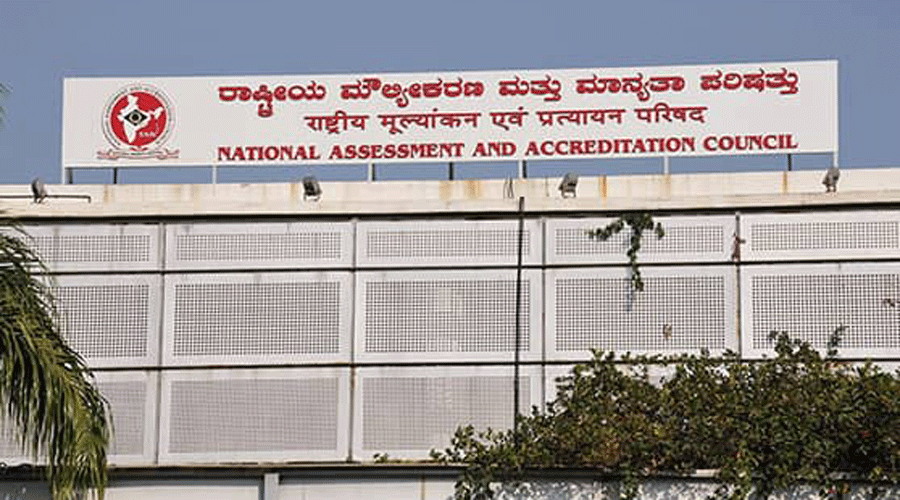The University Grants Commission established the National Assessment and Accreditation Council in 1994 to evaluate the performance of higher educational institutions. In less than three decades, it is embroiled in a quagmire of allegations. Last week, the office of the Comptroller and Auditor General flagged glaring “discrepancies” in the NAAC’s assessment process. This follows the March 5 resignation of the NAAC chairman, Bhushan Patwardhan, days after he alleged in a letter to the UGC that universities were obtaining “questionable grades” by employing unfair means.
Patwardhan, who was appointed in February 2022, suggested that vested interests were manipulating norms governing the accreditation processes. “Based on my experience, various complaints from the stakeholders, and review committee reports, I had expressed my apprehensions earlier about the possibility of vested interests, malpractices, and nexus among the persons concerned, offering thereby a green corridor by presumably manipulating… processes leading to the awarding of questionable grades to some HEIs. Mainly due to this, I had also suggested the need for an independent inquiry by appropriate high-level national agencies,” he wrote.
These malpractices include institutes using expired NAAC grades, plagiarising self-study reports and claims that grades could be purchased. Last year, the media highlighted instances where little-known private institutions had higher NAAC scores than the Indian Institute of Science, Bangalore, one of the country’s top-ranked universities. The inquiry committee commissioned by Patwardhan found that the NAAC’s accreditation process was mired in irregularities. Assessors were being allocated “arbitrarily”, the panel claimed. The report said nearly 70% of the experts from the pool of around 4,000 assessors had not received any opportunity to make site visits, while some had visited multiple times. Among the other lapses were unauthorised individuals having full access to the NAAC’s internal system.
The director of the NAAC, S.C. Sharma, has asserted that its entire process of assessment and accreditation is “transparent” and “cannot be compromised.” A senior professor at Jamia Millia Islamia, a Central university with an A++ NAAC grading, said they were thoroughly trained and ready when the NAAC team visited in 2021. “Though we were on tenterhooks, the university infrastructure was in perfect condition,” he added.
A professor of English in a Bengal government college, Niranjan Goswami, said, “I am principally involved in the NAAC documentation process for my department. The committees entrusted with each criteria notify us from time to time. We produce and scan data and send them. Some of the data are kept in a digital repository. Some kind of accreditation process is essential for keeping quality intact. NAAC accreditation keeps us on our toes and creates a sense of competition and urgency. The link of corruption with any kind of grading is inalienable perhaps with the South Asian psyche. What’s more important than corruption is that accreditation should not be done with the hidden agenda of eliminating colleges from access to resources and making higher education unavailable to the poor by shutting down colleges based on performance.”
Another concern arises when institutes award honorary doctoral degrees to semi-lettered politicians. Desperate, flush-with-funds institutions could well extend such appeasement yardsticks to academic assessors too. Where does that leave the NAAC’s ‘vision’, ‘mission’ and ‘value framework’? Will cleansers of corruption like Patwardhan be replaced instead of addressing the rot that has set into the system? In such a compromised climate, who can blame us for regarding the grades of genuinely stellar institutions with suspicion?










